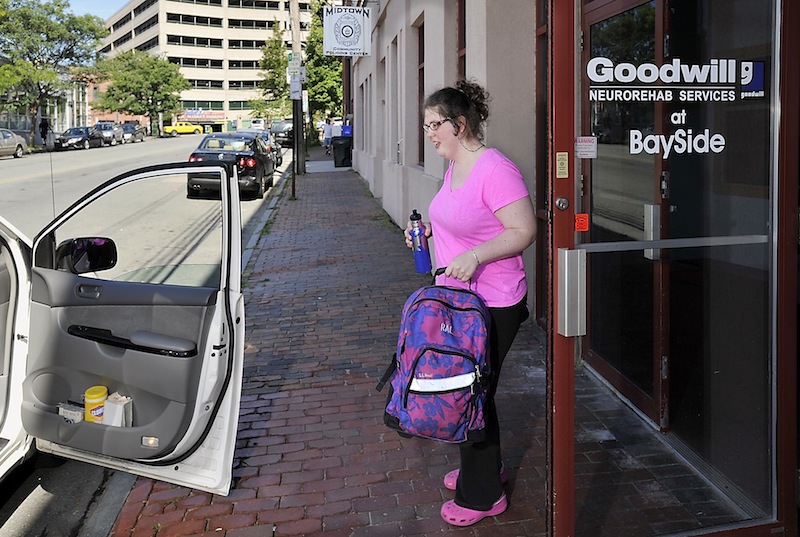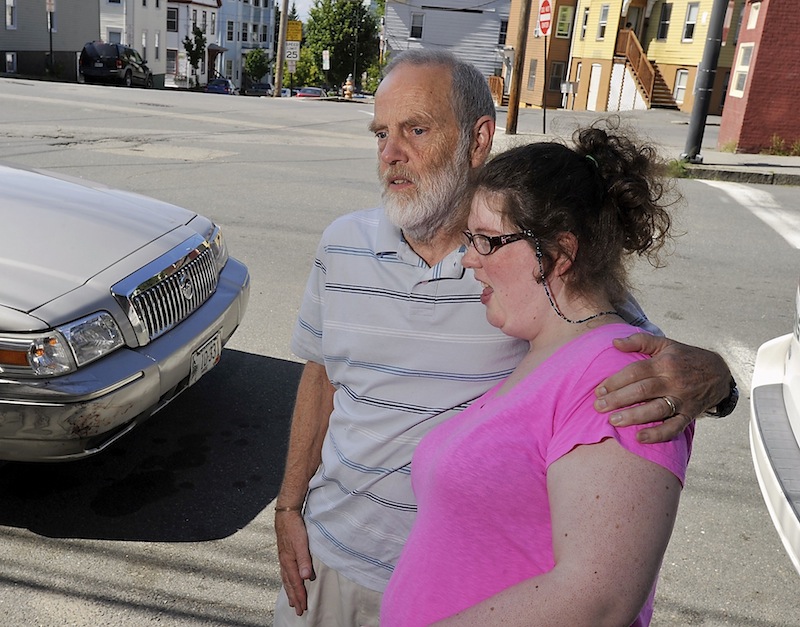For two tense hours, Jennifer Ruel of Old Orchard Beach didn’t know what had happened to her 3-year-old son.
She said her son, who gets MaineCare-funded rides to and from a preschool for developmentally challenged children in Scarborough, had been driven to the wrong house after school Monday.
When he wasn’t home as expected in the early afternoon, she started making frantic phone calls. “Nobody could tell me where my son was,” said Ruel. “I was freaking out.”
The driver eventually figured out how to get to Ruel’s house, and her son, who had fallen asleep, was delivered safely. But the experience has made Ruel leery of using the rides paid for by MaineCare, the state’s Medicaid program.
Since Aug. 1, complaints like Ruel’s have been rolling in to the state from MaineCare recipients who need rides to doctor’s appointments and therapy, and other non-emergency transportation.
The problems stem from new federal rules and new contractors that have been coordinating the rides since joining the transportation program on Aug. 1, state officials said.
“We are fielding a significant number of calls,” said Stefanie Nadeau, director of MaineCare services in the state Department of Health and Human Services.
Nadeau said hundreds of calls have been received, although not all have been complaints. She said the state and the contractors are working to solve the logistical problems.
“We are making progress,” she said.
An official with one of the two new contractors, Atlanta-based LogistiCare, said in a written statement that there have been no major problems with LogistiCare, which serves the York County area.
“In our first week, we handled more than 99.7 percent of scheduled trips without complaint,” Albert Cortina, chief administrative officer of LogistiCare, said in the statement.
But Pam Lee of Kennebunkport, whose 27-year-old daughter, Rebecca, has missed a few rides to and from neurological appointments in Portland, said she has heard from many parents and patients who have had problems in York County.
“It’s been horrendous for people,” said Lee, who wants residents to contact her if they’ve had problems with their rides. She has been passing the complaints along to her U.S. representative, Chellie Pingree.
“I’ve had more than 25 people call me,” Lee said.
An official with Pingree’s office said it is looking into the complaints.
The problems stem from new rules set by the U.S. Centers for Medicare and Medicaid Services, state officials said. The tasks of brokering the rides and providing the rides had to be separated to comply with the regulations.
Previously, local agencies would sign up to provide the service, and would arrange for and provide the rides. But the federal government saw conflict of interest in such systems and required that the tasks be separated, said John Martins, spokesman for the DHHS.
“There was a concern that a provider who also served as a broker could be benefiting by sending the majority of requests for transportation to their own agency,” Martins wrote in an email response to a question.
Nadeau acknowledged that the switch to the new contractors, LogistiCare and Coordinated Transportation Solutions of Connecticut, is running into glitches.
Coordinated Transportation Solutions now arranges rides for most of the state under six separate one-year contracts totaling $28.3 million. LogistiCare brokers rides in the York County area with a $5.1 million contract.
A local contractor won the contract for the Bangor area, where there have not been as many problems, state officials said.
Although it’s based in Georgia, LogistiCare has employees in Maine, company officials said.
Calls and emails to Coordinated Transportation Solutions were not returned Wednesday.
The state spends about $40 million a year in federal money to give rides to MaineCare recipients, many of whom are disabled and lack transportation.
The first year under the new system is supposed to be revenue-neutral. Martins said he doesn’t know whether the state will save money in future years.
Cortina, with LogistiCare, wrote that the new system typically saves states money.
“States that contract with private firms typically save 10 to 15 percent in costs, effectively saving taxpayers tens of millions of dollars while improving the transparency and delivery of the service,” Cortina wrote.
But on Wednesday, Rebecca Lee waited at Goodwill’s Bayside NeuroRehabilitation Services in Portland for a 2:30 p.m. ride that never came. Her father, George, happened to be in Portland and was able to pick her up.
Richard Cantz, a vice president at Goodwill, said there have been problems in the system’s first week, but it seems to be improving.
Robert Poliquin, a driver with the York County Community Action Agency, which still provides rides under MaineCare but no longer coordinates them, said he has heard from many drivers who have run into problems with the new system.
He said Wednesday that he was given a work order to pick up someone, but the person had been told that a ride wasn’t available.
Poliquin said he’s worried about a vulnerable population, including many children with disabilities and elderly patients.
“Someone is going to get hurt from this,” he said.
Joe Lawlor can be contacted at 791-6376 or at:
jlawlor@pressherald.com
Twitter: @joelawlorph
Send questions/comments to the editors.




